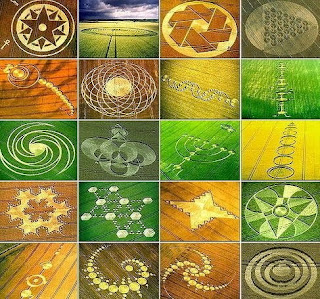Recently back from a joyous weekend in Boston, MA-- a town for which I have long had an extreme fondness, but which I hadn't had the chance to visit in over a decade.

Where does the time go, I ask? Not much had changed since my last visit, I am happy to report. It was beautiful weather in general, and all the wonderful things you expect from a city on the water-- breakdancers in front of Faneuil Hall, seafood within 10 yards of where it was caught, a zombie march through the Commons, little white sailboats on the Charles, etc. etc. etc. A very picturesque backdrop to an incredibly fun visit with lots of different old friends.
For the first time in my life, however, Memorial Day weekend wasn't just frolicking and barbecues. While hoofing it around the city, I inadvertently visited several monuments to victims of war and I remembered them. While walking the Freedom Trail in the North End, I saw a garden memorial to soldiers who have died in the wars in Iraq and Afghanistan, the latter having reached over 1000 just recently, after 10 years of war and no end in sight.

Later that day, I walked through the
New England Holocaust Memorial. A visually and emotionally striking testament to the 6 million people (jews and non-jews) killed during the Nazi regime in Europe. The glass columns have 6 million numbers etched in them, as well as quotes (like this one I have posted) and facts about the war.
Later in the weekend, I found myself back on the Freedom Trail again. Because Boston is so old, there are historical graveyards around town where many famous historical figures are buried. The Granary, for example, contains the remains of Paul Revere, signers of the Declaration of Independence, and victims of the
Boston Massacre, which led to the Revolutionary War.

On Monday, I was walking through the city and again I saw a tribute to Americans who have died in our current wars-- a lawn of american flags in the Boston Commons commemorating each person's passing.
Although the Revolutionary War and World War II seem so clear cut in retrospect (independence, good versus evil), seeing the flags and trying to balance feelings of sadness with larger feelings of frustration made me wonder if, at the time, people may have felt then like I do now about war. Isn't there a better way to solve the problem than having a war? I know it sounds really stupid, but war doesn't just seem barbaric, it seems
stupid. Why would anyone think killing someone (no less lots of people) would solve a problem, rather than just create more problems?

Granted, I am glad we are free of the tyranny of British rule and lord knows I do not support taxation without representation. Similarly, I can't argue against the statement that Hitler's rise to power was horrible and needed to be stopped. But 6 million people didn't die in WWII. 60 million people died. It is tempting to think there might have been a better way to put an end to the Nazi regime than adding more death. Part of

all this reflection stems from my recent decision to become a Civil War buff. I am reading James McPherson's Battle Cry of Freedom right now (which is amazingly well written by the way, I highly recommend it) because I decided that this may well have been the most tragic war I have ever heard of-- literally brother against brother. For some reason, I think I still believe understanding problems is the key to solving them, and my first act towards non-passive pacificism was to get this book. More on this later....




 Where does the time go, I ask? Not much had changed since my last visit, I am happy to report. It was beautiful weather in general, and all the wonderful things you expect from a city on the water-- breakdancers in front of Faneuil Hall, seafood within 10 yards of where it was caught, a zombie march through the Commons, little white sailboats on the Charles, etc. etc. etc. A very picturesque backdrop to an incredibly fun visit with lots of different old friends.
Where does the time go, I ask? Not much had changed since my last visit, I am happy to report. It was beautiful weather in general, and all the wonderful things you expect from a city on the water-- breakdancers in front of Faneuil Hall, seafood within 10 yards of where it was caught, a zombie march through the Commons, little white sailboats on the Charles, etc. etc. etc. A very picturesque backdrop to an incredibly fun visit with lots of different old friends.

 Granted, I am glad we are free of the tyranny of British rule and lord knows I do not support taxation without representation. Similarly, I can't argue against the statement that Hitler's rise to power was horrible and needed to be stopped. But 6 million people didn't die in WWII. 60 million people died. It is tempting to think there might have been a better way to put an end to the Nazi regime than adding more death. Part of
Granted, I am glad we are free of the tyranny of British rule and lord knows I do not support taxation without representation. Similarly, I can't argue against the statement that Hitler's rise to power was horrible and needed to be stopped. But 6 million people didn't die in WWII. 60 million people died. It is tempting to think there might have been a better way to put an end to the Nazi regime than adding more death. Part of  all this reflection stems from my recent decision to become a Civil War buff. I am reading James McPherson's Battle Cry of Freedom right now (which is amazingly well written by the way, I highly recommend it) because I decided that this may well have been the most tragic war I have ever heard of-- literally brother against brother. For some reason, I think I still believe understanding problems is the key to solving them, and my first act towards non-passive pacificism was to get this book. More on this later....
all this reflection stems from my recent decision to become a Civil War buff. I am reading James McPherson's Battle Cry of Freedom right now (which is amazingly well written by the way, I highly recommend it) because I decided that this may well have been the most tragic war I have ever heard of-- literally brother against brother. For some reason, I think I still believe understanding problems is the key to solving them, and my first act towards non-passive pacificism was to get this book. More on this later....
